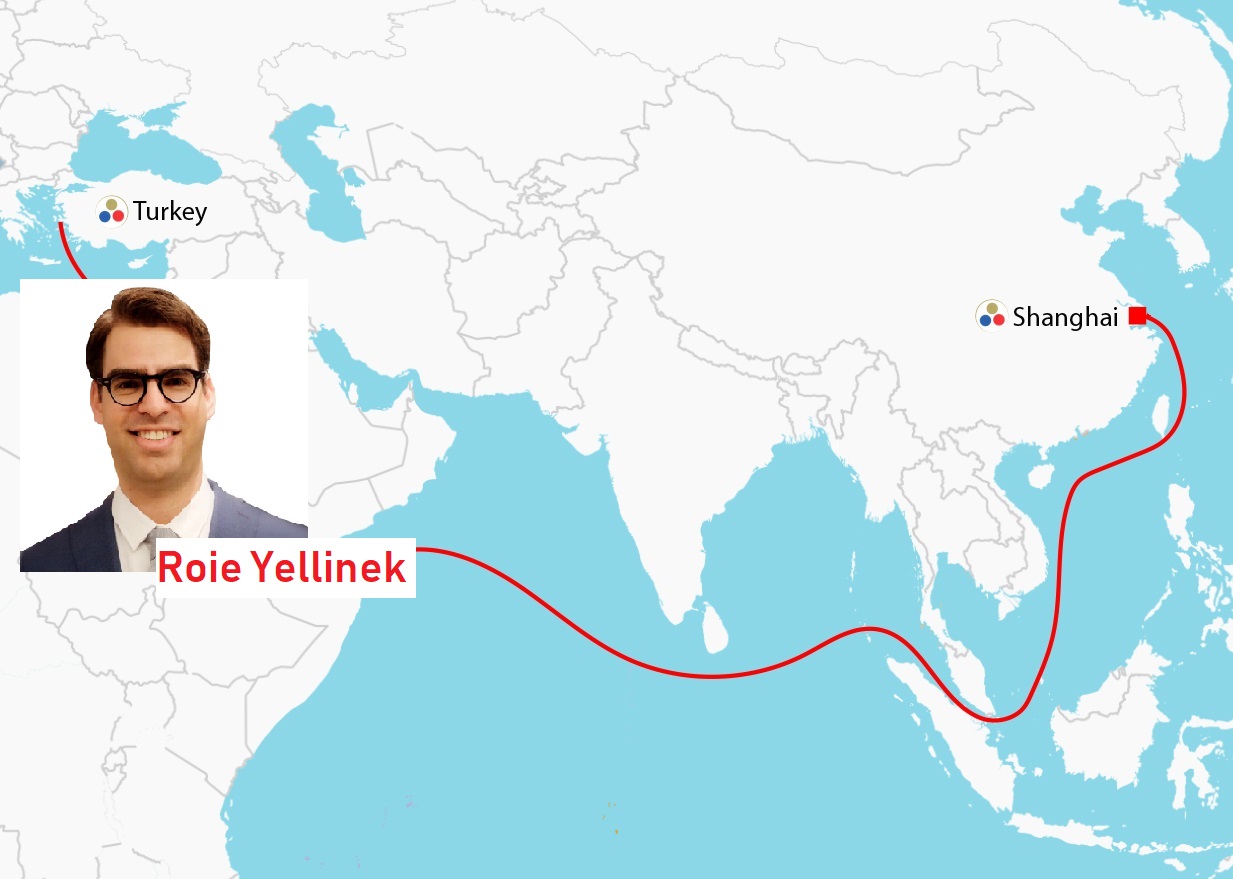On 13 September 2020, with the retreat of Oruç Reis, a Turkish research vessel which carried out drilling surveys in the East Mediterranean Sea for hydrocarbons, the latest stage in the Græco-Turkish dispute was temporarily diffused. Oruç Reis carried out drilling surveys inflaming the tension between the two nations. At the the expiry of the navigational warning, Navtex, for exploration in the region, Turkey withdrew the vessel, choosing not to renew it. The announced reason for the retreat was maintenance works for the vessel, but the vessel was really re-directed to Antalya until the forthcoming Euro summit, when sanctions against Turkey are to be discussed, can run its full course. Even the frequent violations of Greek airspace by Turkish fighter jets have stopped momentarily. If sanctions by the EU are avoided Erdoğan will then give orders to resume the vessel’s activities.
There are a number of related issues that need to be unpacked in relation to the recent adventures of Oruç Reis in the Eastern Mediterranean Sea. As analyst Nervana Mahmoud notes, “Turkish president’s goals are greater than mere gas exploration and a dispute on the demarcation of the maritime border with Greece”. Mahmoud argues that Turkey has two broader goals, expansion of Turkish influence in North Africa and the division of the European Union and NATO as the way to strengthen Turkey and boost its regional power. In this quest Greece with its many islands is an impediment to his plans (Nervana Mahmoud, ‘The Oruç Reis’ significance in East Med dispute, Ahval, 12 September 2020).
In essence, Erdoğan has an overarching expansionist goal, which envelopes parts of North Africa, but goes beyond to include sub-Saharan Africa, the Horn of Africa, the Balkans and the Middle East (primarily Syria but also Lebanon and Yemen). His aim is to create a number of vassal states. What cannot be underestimated is Erdoğan’s dreams of annexing Greek islands as well – articulated through a hegemonic strategy referred to as Mavi Vatan (Blue Homeland). At the very least he is eying the island of Kastellorizo, as many analysts pointed out. Rallies held by the far right groups in Turkey demanded even more: the archipelago of 12 Greek islands (known as Dodecanese) to be annexed to Turkey.
The issue of maritime demarcation is a pretext to escalate a conflict with Greece, hoping to capitalize on Greece’s current well known weaknesses, in terms of resources and perceived unwillingness to engage in a war with Turkey. These issues cannot easily be mediated in this growing dispute.
Throughout the process, Erdoğan and his foreign minister Çavuşoğlu used highly offensive language against Greece and the Greek people, which later escalated to include the French President Emmanuel Macron. When the Greece’s diplomatic efforts started bearing fruits, Erdoğan’s and Çavuşoğlu’s language became vitriolic in a way that it is unbecoming for politicians that hold such high offices. Çavuşoğlu stated that Greece needed to be silent so as so as not to become a meze (snack) for the interests of others. Imagine if the Greek Prime Minister articulated such inanity. Erdoğan would have organised large rallies to condemn Mitsokatis for insulting the Turkish people. Yet, both he and Çavuşoğlu have given themselves a license to insult the Greek people.
What angered both Çavuşoğlu and Erdoğan is that Greece has been successful in forming alliances with a number of nations (Egypt, Israel, France, Austria, and UAE) and blocks (Med 7, EU and even NATO) to force Erdoğan to end the hostilities. This volatile situation can escalate into an armed conflict in any moment, which is what Erdoğan is pursuing. By all accounts, Erdoğan seems to believe that he will be victorious in such a confrontation. Often wars have no clear winners and multiple losers. While Erdoğan keeps building luxurious palaces for himself and redirecting funds to his war efforts, unemployment is increasing in Turkey and working classes are becoming poorer. They bear the brunt of the on-going multi-front war campaign.
By promoting an Islamo-nationalist agenda Erdoğan has managed to whip a large section of the Turkish society into frenzy, holding rallies, as mentioned, demanding Greek islands. How is he going to calm this population excited by the greatness conjured up by Erdoğan? Erdoğan have certainly contributed to the well-being of Turkish nation, but he now seems intent on destroying what he built. He isolated himself by continuously creating enemies. Except for Bulgaria, he has some sort of disputes with all the neighboring countries. Only Putin seems to tolerate and indulge Erdoğan and perhaps Merkel – thinking of German interests. President Trump also indulges Erdoğan by continuously calling him a friend. I always wondered when they developed this friendship. Erdoğan does not speak English. What friendship can one develop through interpreters in official settings? Trump is reportedly fond of authoritarian leaders and Erdoğan has been able to take advantage. However, Mike Pompeo’s snap visit to Cyprus and his expression of concern regarding Turkey must have played a role in the decision to withdraw Oruç Reis.
It is to be wondered how Erdoğan thinks that he will achieve his dreams while he is continuously irritating Europe, his NATO allies and numerous Middle Eastern countries, including Saudi Arabia. Even the relationship with Iran and Russia, which seems to be paradoxically cordial, may prove to be fragile. They are adversaries in Libya (Russia) and Yemen and Syria (Iran). The circumstances allow them to selectively ignore their conflict in some zones so long as they do not engage elsewhere. China is also supporting Turkey financially to buy Erdoğan’s silence on the plight of the Turkic Uygur people. The risk for Erdoğan is that Turkey may become a Chinese client state. China seeks to dominate not co-operate.
There are three ways an armed conflict between Greece and Turkey can be avoided. One way is by Greece continuing to be successful in forming and maintaining alliances to discourage Erdoğan from taking the next step. Secondly, Erdoğan may reinvent himself to return to more rational pursuits. This seems unlikely. He is too far advanced in his quest for greatness, grandeur and glory to retreat. Another unlikely option is a strong opposition to war within Turkey.
As Abdullah Bozkurt from Nordic Monitor revealed, from documents submitted in a court hearing on 21 March 2019, “the Turkish government runs a disinformation campaign, disseminates lies, peddles conspiracies and uses the media apparatus under its control to mislead the public, build false narratives and manipulate people’s perceptions.” This is nothing new. Newspapers used this sort of methods before. What Bozkurt is exposing through documentary evidence, is the collusion of government, Turkey’s spy agency, MIT and media. In this climate, people opposing war will find themselves defamed, accused of treason, harassed and arrested. There are many examples already. Turkey is involved in war in Syria and groups opposing it found themselves in strife. (See Pelin Ünker, ‘Türkiye’de “savaşa hayır” demenin bedeli’, Deutsche Welle, 16 October 2019).
The only way war can be avoided is if Erdoğan believes that the reprisals will be too high (sanctions from Europe, opposition from the US and Russia). He is not concerned with the Arab nations and Israel. Daniel Pipes recently wrote, echoing Jack Dulgarian, that Turkey is likely to invade Kastelorizo which is only two kilometers from Turkey and then assess the consequences of such action (‘Will Turkey and Greece Clash over a Tiny Island?’, The Spectator, 16 September 2020).
This tactic worked in the invasion of Northern Cyprus. No amount of condemnations and UN resolution changed the reality of the occupation. He would be hoping for the same outcome, if Turkey invades Kastelorizo. Pipes also notes that “[o]n their own, the Hellenic Armed Forces cannot retake the island” if Turkey were to invade it. This may be true, but analysts discount the possibility of the Hellenic fighter jets attacking Turkish targets. After all, an attack in Kastellorizo may force Greeks into an all-out war, as their patience is wearing thin for being the target of Erdoğan’s belligerent attitude and activities. Erdoğan may hope for a clean victory to sell to its domestic audience, but wars are never clean affairs. There will be innocent victims on both sides and the consequences for either Athens or Ankara cannot be predicted.
I think the litmus test would be the invasion of uninhabited Greek islands. He will test Greece’s resolve by using this “salami tactic”. If Greece and the world does not respond forcefully, he will move on to larger targets. I have a faint hope that negotiations with Greece will take place and will bear fruit for both sides. However, much of it will depend on Greece giving up her sovereign rights. I cannot see Erdoğan ceding anything. He is only willing to sit at the negotiation table to take something from the other side. Çavuşoğlu stated as much and said that they were open to negotiations with Greece as long as Turkey takes what it wants, in relation to a raft of issues including continental shelf and Exclusive Economic Zone. This leaves very little room for optimism, but one cannot help but hope that sanity will ultimately prevail.
- Erdoğan: President, Sultan, Caliph or Başbuğ? - 08/01/2021
- [ Turkey ] Alliances, partnerships, nemeses, vassal states - 30/11/2020
- Is a Greco-Turkish war inevitable? - 20/09/2020



